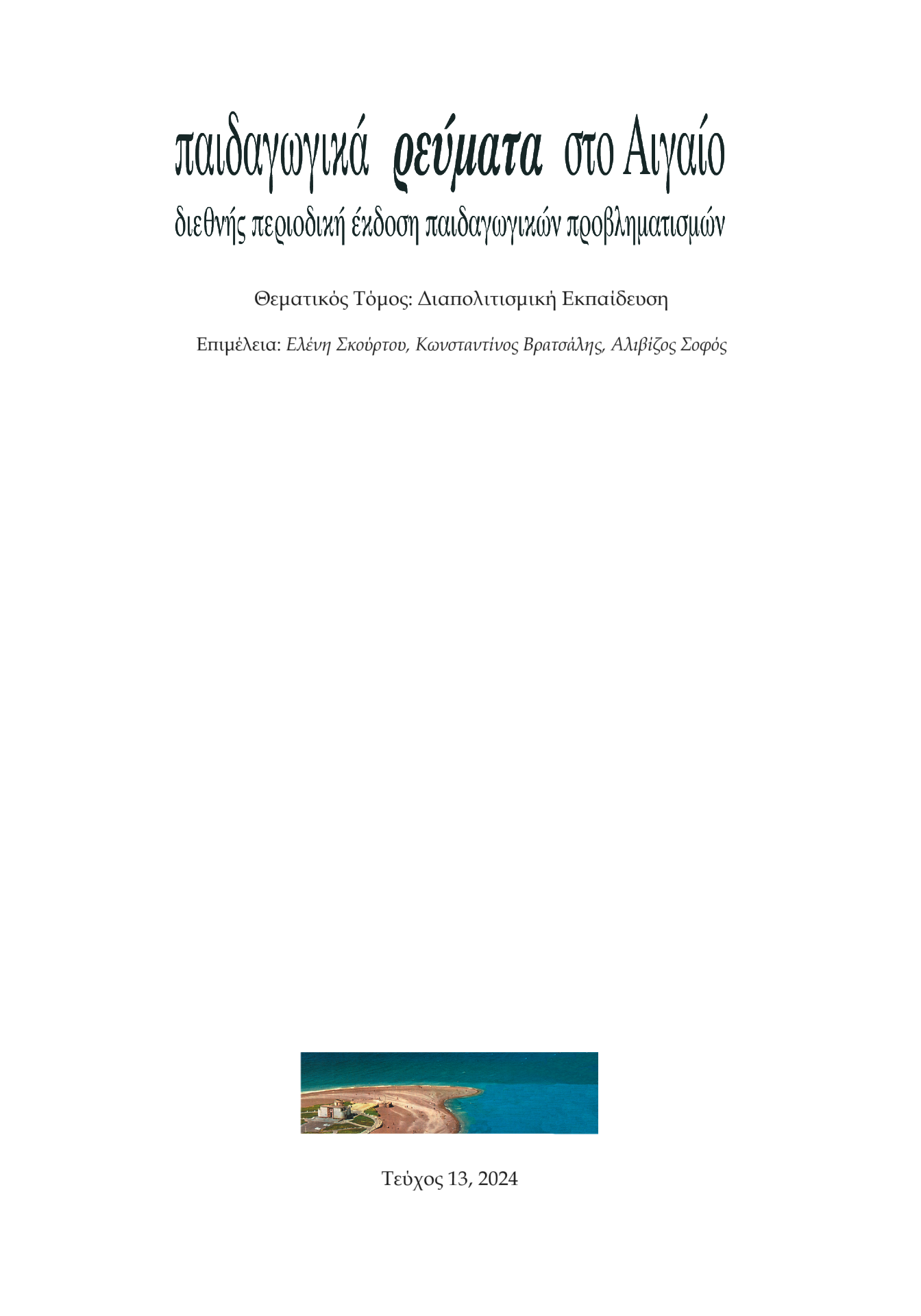Πρόσφυγες ή μετανάστες; Αναπαραστάσεις των προσφυγικών ροών από τους μελλοντικούς εκπαιδευτικούς
Περίληψη
Flows of refugee populations into a country usually create a de facto religious, ethnic, linguistic or cultural diversity which eventually has its impact on the host country’s educational system. Objectively existing heterogeneity does not mean, however, that the host country population automatically adopts a positive attitude towards this change and that it endorses without reservations or reactions the official narrative of the value and usefulness of a multicultural society. The positive attitudes of political formations, scientific unions, intellectuals, artists and other influential authorities in the public sphere may contribute to the development of a climate of acceptance of the "other", but the course of the narrative of multiculturalism from its exponents to the wider social body should not be considered linear. Of particular interest are the perceptions of future teachers about the motives behind the refugee flows to the host country. This paper presents and discusses some of the results of an empirical study on a sample of 297 students of educational faculties / future teachers on the motivations of refugees to cross the borders. The central question this article attempts to answer is (a) whether the new generation of teachers sees behind the refugee flows individuals who move because they are in danger (refugees) or persons who attempt to improve their economic life conditions (migrants), and (b) whether this perception has an impact on the degree of endorsing multiculturalism on their part as a positive social model.
Λεπτομέρειες άρθρου
- Πώς να δημιουργήσετε Αναφορές
-
Γκότοβου Α. (2024). Πρόσφυγες ή μετανάστες; Αναπαραστάσεις των προσφυγικών ροών από τους μελλοντικούς εκπαιδευτικούς. Παιδαγωγικά ρεύματα στο Αιγαίο, 13(1). https://doi.org/10.12681/revmata.37699
- Τεύχος
- Τόμ. 13 Αρ. 1 (2024)
- Ενότητα
- Θεωρείο

Αυτή η εργασία είναι αδειοδοτημένη υπό το CC Αναφορά Δημιουργού – Μη Εμπορική Χρήση – Παρόμοια Διανομή 4.0.



